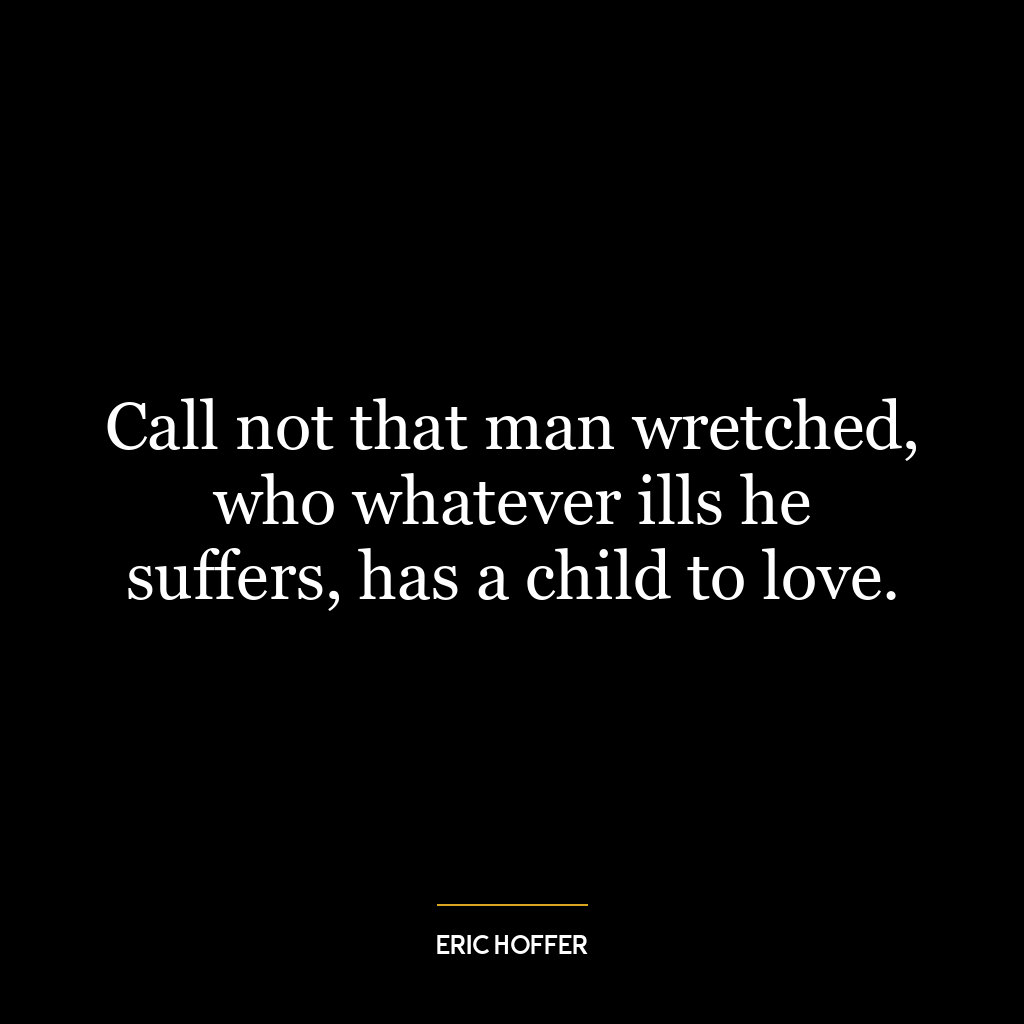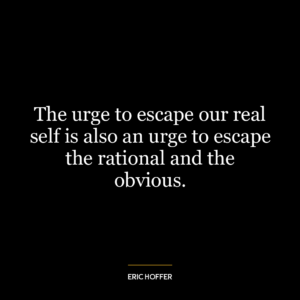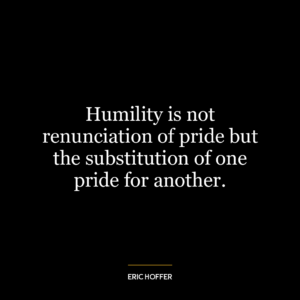Call not that man wretched, who whatever ills he suffers, has a child to love.
This quote is a profound reflection on the transformative power of love, particularly the love between a parent and a child. It suggests that no matter what difficulties, hardships or ‘ills’ a person may be experiencing, the presence of a child to love can mitigate this suffering. The quote emphasizes that the unconditional love, joy, and fulfillment a child can bring to one’s life is a form of wealth that outweighs any material riches or lack thereof.
In other words, the love for a child can provide a sense of purpose, motivation, and happiness that can help a person endure and overcome adversity. It’s a reminder that our perception of happiness and fulfillment shouldn’t solely be based on materialistic or external factors, but rather on the deep, meaningful relationships we nurture in our lives.
In today’s world, this quote is even more relevant. In a society that often equates success with material wealth or professional achievements, this quote serves as a reminder that personal relationships and emotional bonds can provide a much deeper sense of fulfillment and happiness. It can be a call to shift our focus from the pursuit of external success to nurturing our relationships, especially those with our children.
In terms of personal development, this quote can inspire us to invest more time and energy in our relationships. It suggests that cultivating love and connection with our loved ones, particularly our children, can be a source of strength, resilience, and happiness. It encourages us to value these relationships and to see them as a form of personal wealth and success.















